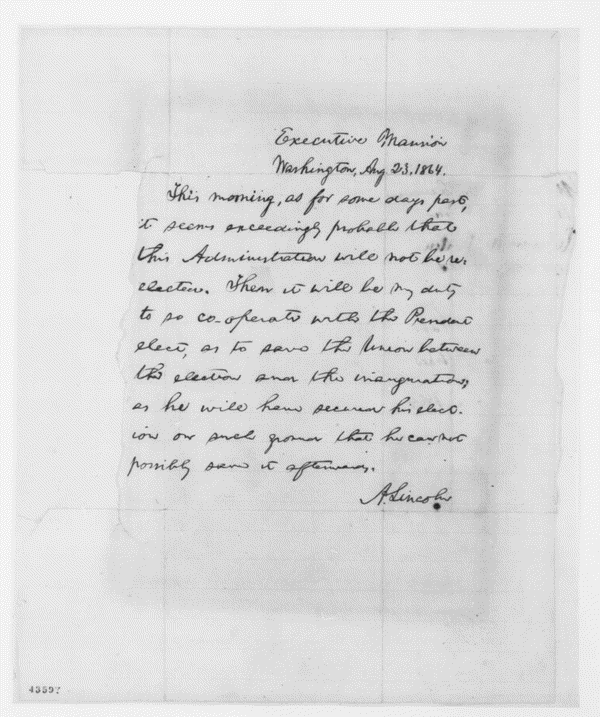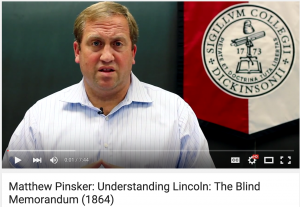Historical Background
Just about a decade after the ratification of the Constitution, the nation entered a period of assault on fundamental civil liberties which Thomas Jefferson himself labeled a “reign of witches.” The controversy involved a partisan battle between Federalists and Republicans over national security policy. In 1798, the US Congress adopted a series of measures known as the Alien & Sedition Acts, designed to help secure the homeland against what seemed like an impending war with France, a former American ally. Jefferson was vice president of the United States at that time, but he was a Democratic-Republican serving in a Federalist administration and felt that his political movement was being targeted for suppression. The Republicans waged the 1800 election contests partly on this basis and thus felt vindicated by their subsequent victories, especially Jefferson’s selection as president in 1801. It was a messy and divisive period, but one that established an American precedent of attempting to resolve conflicts over wartime civil liberties through a vigorous election process.
Lincoln’s Example
For critics of excessive presidential power, Lincoln offers an example of the potential for executive abuse of civil liberties. Article I, Section 9 of the US Constitution forbids the suspension of habeas corpus (the “Great Writ” as it was known) except “when in Cases of Rebellion or Invasion the public Safety may require it.” This protection of a fundamental civil liberty (the right to a judicial process when facing arrest) was one of the very few liberties written into the original 1787 constitutional text. It obviously held a sacred place among the Founders. Yet Lincoln appeared to defy the Chief Justice of the United States (Roger Brooke Taney) and act in advance of the Congress when he suspended habeas corpus in Maryland and elsewhere in April and May 1861 at the outset of the Civil War. Later in the conflict, Lincoln and his military commanders authorized preventative arrests against thousands of individuals and the suspension of dozens of anti-war newspapers. President Lincoln appeared to take a particularly hard line against opponents of the federal draft, arguing in somewhat chilling terms, “Must I shoot a simple-minded soldier boy who deserts, while I must not touch a hair of a wiley agitator who induces him to desert?” The result of this attitude and the Lincoln Administration’s controversial wartime policy on civil liberties was an outcry from the president’s political opponents in the North.
In fact, to a remarkable degree and in a way that recalled the bitterness of 1800, the reelection of Abraham Lincoln in 1864 was a contest about civil liberties and executive tyranny. Lincoln allowed his wartime critics to challenge him on this basis, a remarkable example in retrospect of his underlying belief in the election process. In fact, anyone who doubts Lincoln’s underlying restraint as a wartime executive should look no further than August 1864. This was the moment when Lincoln contemplated the real possibility of his defeat for reelection, yet decided to plough ahead anyway. “This morning, as for some days past,” he wrote in a secret memorandum on August 23, 1864, “it seems exceedingly probable that this Administration will not be re-elected.” Yet Lincoln’s solution to this dilemma was not to change his unpopular policies (such as emancipation), step aside as his party’s nominee (as he was being pressed very hard to do) or, most notably, to cancel or ignore the elections. Instead, Lincoln vowed to honor the results, whatever they were, and to pledge to work with his opponent in a kind of coalition government during what was then the long transition period between November election and March 1865 inauguration.
If that commitment to the electoral process sounds unexceptional, just recall every other bold executive action that Lincoln had already undertaken. President Lincoln believed that there could be free government without civil liberties, or full property rights, but not without elections, which he deemed a special “necessity” on November 10, 1864. Why? The answer lies with his deep, abiding sense of popular sovereignty. “Public sentiment is everything,” he had said during the Lincoln-Douglas Debates of 1858, “With public sentiment, nothing can fail; without it, nothing can succeed.” This faith in people to settle the great questions of their nation also represented a final bulwark in the containment of executive usurpation. A president elected by the people and subject to their reelection, according to the Lincolnian view, was not, and could never be, a tyrant. More important, a people who truly governed themselves could never be slaves.
- US Constitution, Article I, Section 9, Clause 2
- Letter to Erastus Corning (June 12, 1863)
- Blind Memorandum (August 23, 1864)
- Response to Serenade (November 10, 1864)
Modern Debates
In July 2014, a panel of leading journalists convened at the New America Foundation in Washington DC to discuss ways that the wartime press has evolved since Lincoln’s era. Dr. Jeffrey McCausland (Dickinson College and Strategic Studies Institute at the US Army War College) served as panel moderator and Matthew Pinsker (instructor, Understanding Lincoln online course) joined the session, which involved a lively exchange with Kimberly Dozier (The Daily Beast), Linda Mason (CBS) and Thom Shanker (New York Times). For more information on the panelists, see this press release. C-SPAN also televised this session and provided a transcript here.
The event produced several lively exchanges over the nature and potential limits of press freedom during periods of wartime or when national security matters are at stake. The panelists considered how respect for the freedom of press has grown since Lincoln’s era, but nonetheless remains in jeopardy at times because of the perennial concerns over leaks. These topics are controversial and the discussion generated both probing questions from the course participants and also some reasonably fierce pushback later from the blogosphere. This reaction came in large measure because of the following story which appeared in Time magazine online.


